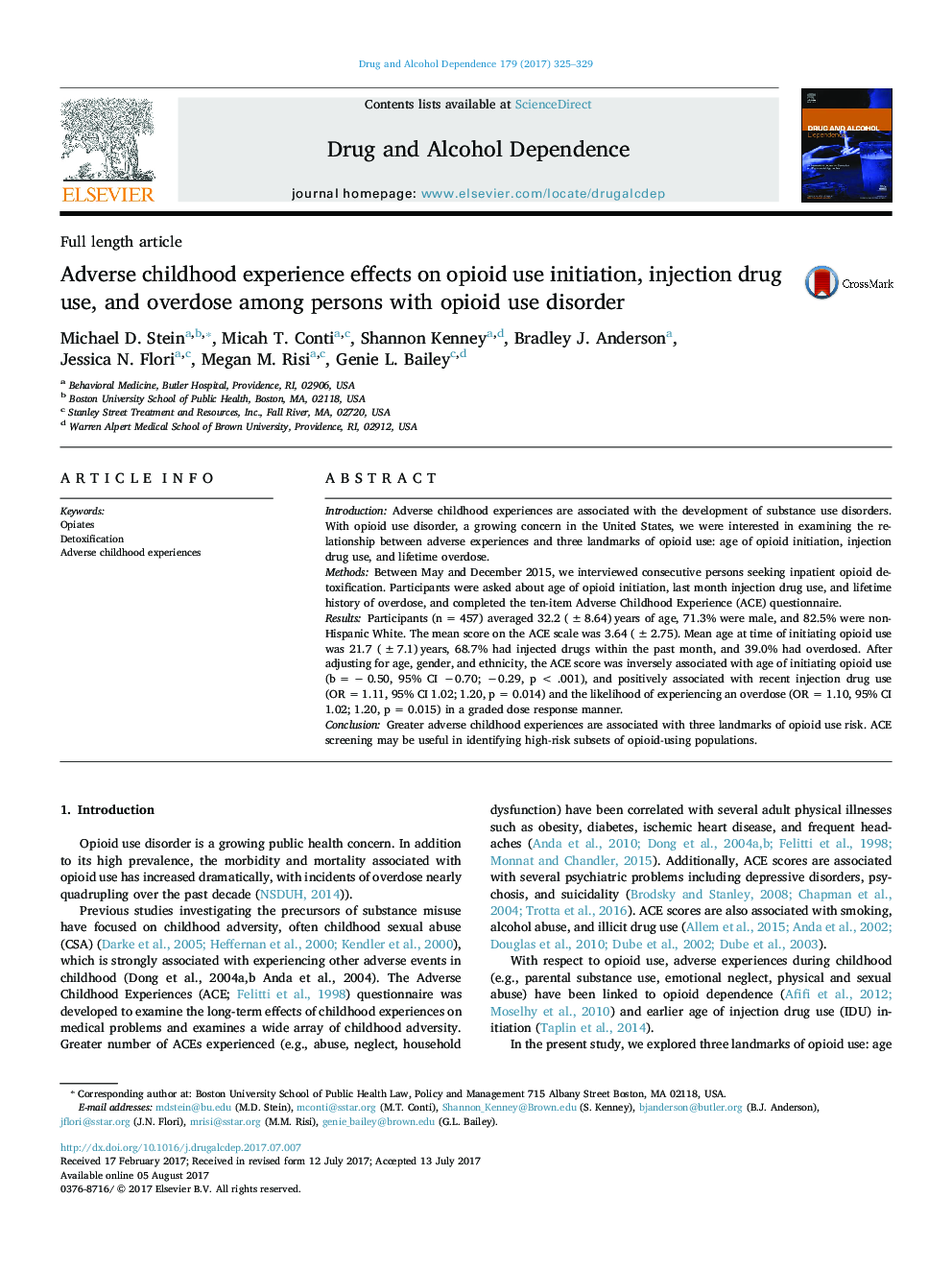| Article ID | Journal | Published Year | Pages | File Type |
|---|---|---|---|---|
| 5119960 | Drug and Alcohol Dependence | 2017 | 5 Pages |
â¢Adverse Childhood Experiences (ACE) were associated with earlier age of initiating opioid use.â¢ACE were associated with recent injection drug use and lifetime overdose.â¢About half of respondents experienced four or more of the ten assessed ACE.
IntroductionAdverse childhood experiences are associated with the development of substance use disorders. With opioid use disorder, a growing concern in the United States, we were interested in examining the relationship between adverse experiences and three landmarks of opioid use: age of opioid initiation, injection drug use, and lifetime overdose.MethodsBetween May and December 2015, we interviewed consecutive persons seeking inpatient opioid detoxification. Participants were asked about age of opioid initiation, last month injection drug use, and lifetime history of overdose, and completed the ten-item Adverse Childhood Experience (ACE) questionnaire.ResultsParticipants (n = 457) averaged 32.2 (±8.64)âyears of age, 71.3% were male, and 82.5% were non-Hispanic White. The mean score on the ACE scale was 3.64 (±2.75). Mean age at time of initiating opioid use was 21.7 (±7.1)âyears, 68.7% had injected drugs within the past month, and 39.0% had overdosed. After adjusting for age, gender, and ethnicity, the ACE score was inversely associated with age of initiating opioid use (b = â 0.50, 95% CI â0.70; â0.29, p < .001), and positively associated with recent injection drug use (OR = 1.11, 95% CI 1.02; 1.20, p = 0.014) and the likelihood of experiencing an overdose (OR = 1.10, 95% CI 1.02; 1.20, p = 0.015) in a graded dose response manner.ConclusionGreater adverse childhood experiences are associated with three landmarks of opioid use risk. ACE screening may be useful in identifying high-risk subsets of opioid-using populations.
